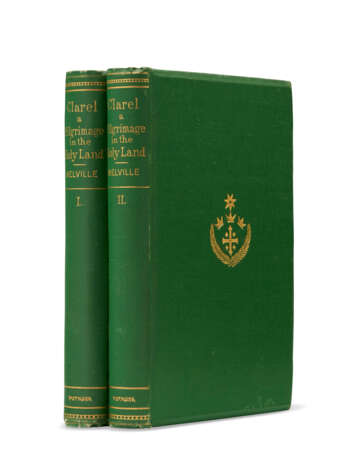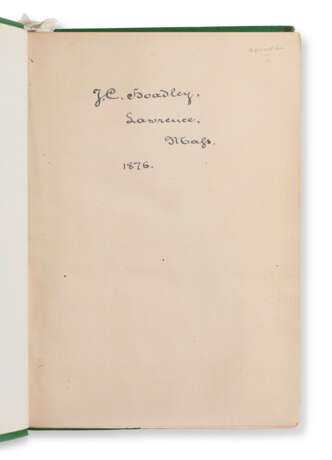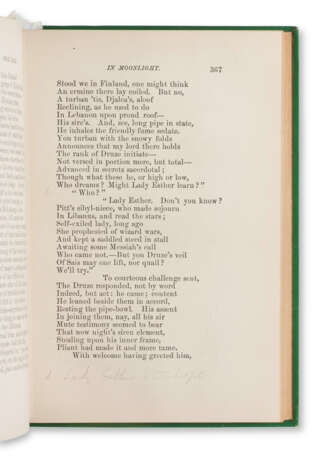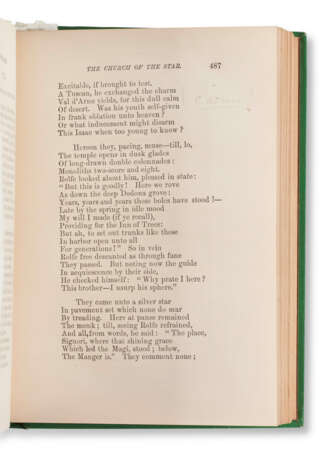ID 797295
Lot 656 | Clarel, the Doheny copy
Estimate value
$ 15 000 – 25 000
The Doheny copy of the first edition of Melville's allegorical epic, originally from the collection of Melville's brother-in-law, J.C. Hoadley. Inspired by his travels to Palestine in 1857, Clarel was published in two volumes on 3 June 3 1876 by G. P. Putnam & Company at the expense of Melville's uncle, Peter Gansevoort. It was a heavy burden on Melville, taking him nearly 20 years to complete against a backdrop of personal tragedy, including his son's Malcolm's suicide and the deaths of his brother, mother, and cousin. The four-part poem, comprised of 150 cantos and almost 18,000 lines (close to twice as long as Paradise Lost) about a naive American named Clarel. With John C. Hoadley's annotations and ownership inscription. A fine copy of a rare title, one of 126 which escaped pulping by the publishers. There were only 350 copies printed, and Melville gave his permission to the publishers to destroy 224 of them in March of 1879, less than three years after publication. BAL 13674.
Two volumes, octavo. Original green cloth, brown coated endpapers (front hinge of vol 1 a little tender, some minor rubbing to extremities). Custom chemises and half morocco slipcase. Provenance: John Chipman Hoadley, Lawrence, Mass. 1876 (ownership inscription and light pencil annotations to text) – Estelle Doheny (her sale, Christie’s New York 21 February 1989, lot 2062).
Exhibited: "A Herman Melville Collection ... on the occasion of the 100th anniversary of his death, from the collection of William S. Reese," Beinecke Rare Book and Manuscript Library, Yale University, 1991, no. 37.
| Place of origin: | USA |
|---|---|
| Auction house category: | Printed books |
| Place of origin: | USA |
|---|---|
| Auction house category: | Printed books |
| Address of auction |
CHRISTIE'S 20 Rockefeller Plaza 10020 New York USA | ||||||||||||||
|---|---|---|---|---|---|---|---|---|---|---|---|---|---|---|---|
| Preview |
| ||||||||||||||
| Phone | +1 212 636 2000 | ||||||||||||||
| Fax | +1 212 636 4930 | ||||||||||||||
| Conditions of purchase | Conditions of purchase | ||||||||||||||
| Shipping |
Postal service Courier service pickup by yourself | ||||||||||||||
| Payment methods |
Wire Transfer | ||||||||||||||
| Business hours | Business hours
|






